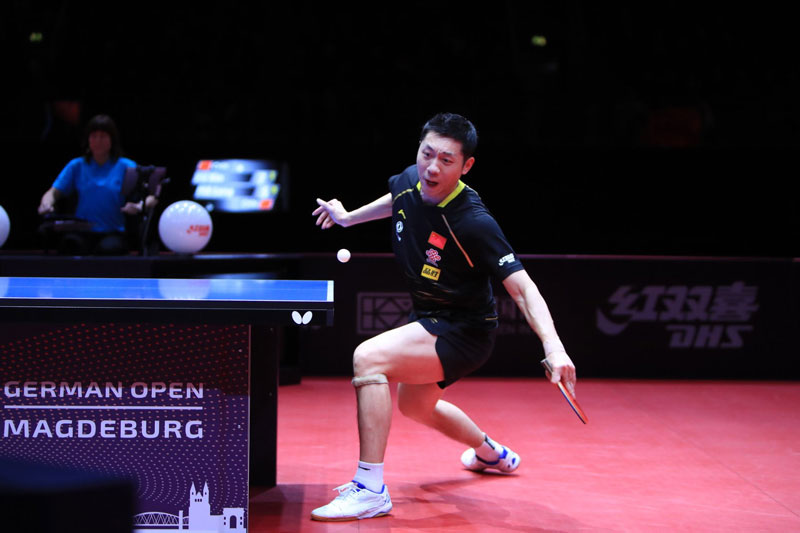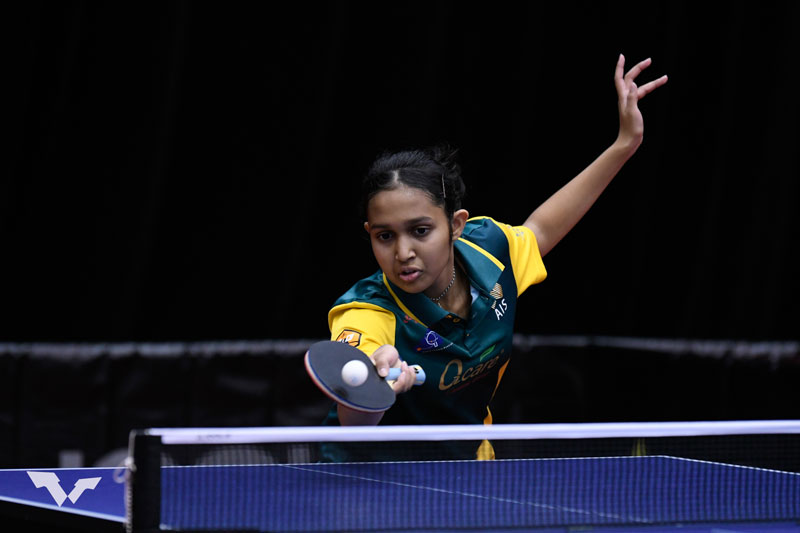Is there a rule about the length of the game?
How long can a game of table tennis last?
What happens if both players keep the ball in play?
Can they continue playing forever?
Do the rules of table tennis say anything about this?
Well, yes, the rules of table tennis do cover this eventuality, and since the change to the 11up scoring system in 2001, there’s now a time limit of 10 minutes per game.
If a game is unfinished after 10 minutes AND fewer than 18 points have been scored (i.e. score has not reached 9-9 or 10-8), the game continues to a conclusion using the expedite rule.

In the beginning...
Although the history of table tennis can be traced as far back as the late 1880s, the game we know today started in the 1920s when Englishman Ivor Montagu and other Europeans formed the International Table Tennis Federation (ITTF) in 1926.
But it didn’t take long before problems started to arise with the basic table tennis rules.
Many players had adopted a defensive style of play and their games were taking longer and longer to reach a conclusion.
In fact, this caused a major controversy at the 1936 World Championships when the first point in a match between Poland and Romania lasted for over two hours!
So it was quickly decided that there had to be a…
Time limit on games
Because games were becoming longer and longer, a new rule was created to place a time limit of 20 minutes on games in World Championship events.
At the same time, all countries affiliated to the ITTF were asked to pursue measures to discourage their own players from using the defensive tactic of “pushing”.
So for the start of the 1936/37 table tennis season, we saw the introduction of the expedite rule.
As the game of table tennis has evolved significantly since its beginning, the expedite rule was also revised extensively throughout the years, and was last changed in 2010.
Expedite Rule 2010
The Expedite rule was last modified and restructured in 2010.
So now the basic table tennis rule for how long a game can last is as follows…
Law (rule) 2.15.01
Except as provided in 2.15.2, the expedite system shall come into operation after 10 minutes' play in a game or at any time requested by both players or pairs.
Law (rule) 2.15.02
The expedite system shall not be introduced in a game if at least 18 points have been scored.
Law (rule) 2.15.03
If the ball is in play when the time limit is reached and the expedite system is due to come into operation, play shall be interrupted by the umpire and shall resume with service by the player who served in the rally that was interrupted; If the ball is not in play when the expedite system comes into operation, play shall resume with service by the player who received in the immediately preceding rally.
Law (rule) 2.15.04
Thereafter, each player shall serve for 1 point in turn until the end of the game, and if the receiving player or pair makes 13 correct returns in a rally the receiver shall score a point.
Law (rule) 2.15.05
Introduction of the expedite system shall not alter the order of serving and receiving in the match, as defined in 2.13.6.
Law (rule) 2.15.05
Once introduced, the expedite system shall remain in operation until the end of the match.

The Expedite rule will restrict the length of some games
So, after many refinements to a rule which was first introduced in 1936, the current rule states that games can only last for a maximum of 10 minutes play before the Expedite rule comes into operation, unless at least 18 points have already been scored.
So after 10 minutes play…
- If at least 18 points have already been scored, the game continues to a conclusion – however long it takes.
- If at least 18 points have NOT been scored after 10 minutes play, the game will be interrupted by the umpire.
- It will then restart with the onus effectively placed on the server to play offensively.
- Each player will serve alternately until the end of the game.
- If the receiver makes 13 good returns, the receiver will win the point.
- There is no further time limit imposed on the remainder of that game.
- But in order to reduce the time taken to play subsequent games, all subsequent games in that same match will use the Expedite rule from the start of the game – so for example, if you are playing a match which is the best of five games and Expedite is implemented in game one, games two through five will start using the Expedite rule from the beginning i.e. when the score is 0-0.
But with the modern game now being all about fast attacking, offensive play, we rarely see the Expedite rule being required in top level matches.
However, it is still a part of the rules and so it still prevents matches lasting too long.

